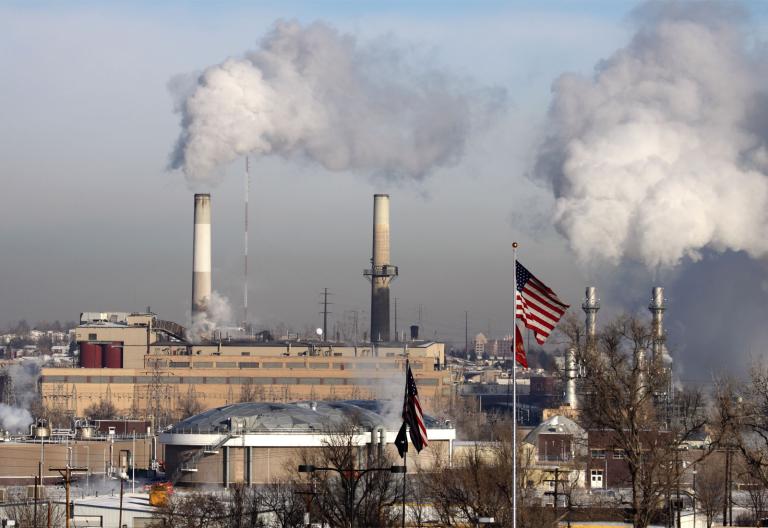Once again, the American Petroleum Institute is attempting to paint itself as a climate savior – and not doing it very convincingly.
On Wednesday, the dominant fossil fuel lobbying group held an hourlong press conference about its annual State of American Energy report during which various API executives touted the fact that the United States has maintained its position as a net exporter of oil and gas despite the general chaos of the COVID-19 pandemic; the “growing diversity” of the oil and gas workforce; and the “spirit of innovation” that the industry brings to the pressing dilemma of climate change.
That last talking point may seem surprising given that the organization’s driving motive has long been to stymie legislative action to address climate change, but API and other fossil fuel business groups have recently made moves to reform (and in some cases, reverse) their stance on select market-based climate policies. (The operative term being “market-based.”) In particular, Big Oil had thrown support behind carbon pricing systems and carbon capture technologies – neither of which requires fossil fuel companies to significantly change their business models.
During the address, API officials made a point of talking up the American fossil fuel industry’s development of carbon capture technology as a way to reduce their own emissions. Carbon capture generally involves trapping carbon emissions right at the site of a source of pollution, such as a power plant, to be stored or used for another purpose.
This type of mechanism will certainly be one helpful tool in the massive reduction in emissions needed to avert catastrophic levels of warming, but it shouldn’t be too heavily leaned upon. A recent report by the Government Accountability Office detailed the overall failures of that technology so far — and the ways in which it provides new opportunities for fossil fuel extraction. As Molly Taft wrote for Gizmodo on Wednesday:
The one “successful” CCS project to come out of all that investment was the Petra Nova plant, which closed in 2021 after just four years of operation. Petra Nova’s CCS technology required so much extra energy to run that its owners created an entirely separate natural gas plant just to fuel it. The carbon dioxide pulled from the plant’s emissions was also used to drill for oil, essentially negating the climate benefits.
Senior Vice President Megan Bloomgren concluded her segment of this charade by saying: “The energy our industry manufactures every day is doing more to help the human condition than ever before.” Her comment punctuates the organization’s repeated claim that the biggest threats to said human conditions include foreign oil dependence and “energy poverty.” Meanwhile, we continue to break average global warming records and climate change is already connected to 5 million preventable deaths a year.




